Terri Lawton and I look closely at Rainy, the granddaughter of Jackal whom I met in 2009. Terri told us that Ayrshires are a rarer breed of milk cow from the Scottish Highlands that are great for cheeses. Most dairy cows are Holsteins (the black and white ones). These cows are mostly speckled with brown. In regard to cheeses, their yield for cheese is higher than any other breed. As Terri explained, their fat molecules are small and bind more with the casein proteins when making cheese. So there is more volume of cheese per gallon of milk. From these cows, Terri makes wonderful fromage blanc and asiago cheeses. She is also licensed in the state of Massachusetts to sell delicious, sweet raw milk.
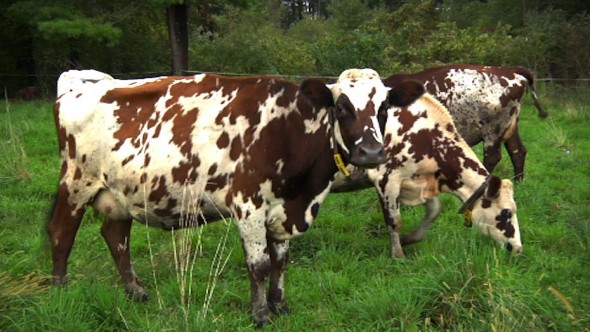
All of Terri’s cows are completely grass-fed outside on pasture. Not only is this the best for the animals and the milk they produce, it’s also important for the beef that they will eventually become. When an animal is no longer useful for dairy, Terri explained, their highest value is from beef. Grass-fed animals run on the leaner side, and are much higher in Conjugated Linoleic Acid (CLA), an important anticarcinogen. And while the national average for dairy cows to become beef is at 4 years, Terri keeps her cows in the herd for 13 years, and sometimes even 16 years. She said that the older animals won’t have good steaks, but they become hamburger, hot dogs, sausage and stew meat. Also, the tenderloin (a muscle in the back that’s not used a lot) can be used.
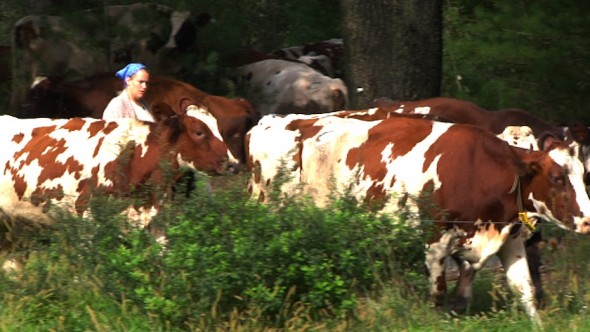
We had a wonderful time filming and photographing these cows, since they are very friendly and curious. Here is Skinny looking at the camera. Her name is really May Belle, but when Terri bought her, no one wanted her because she was too skinny. But Terri took a risk and now she’s healthy and happily 8 months pregnant. As is customary with dairy, all of the cows are artificially inseminated. Terri is a trained technician to do this on her farm.

Terri’s herd numbers around twenty five. All of the cows in these photos from the field are mothers. The heifers (younger animals net yet pregnant) are kept in a separate area. They will get pregnant when they are about a year and a half. This is Risario, who is about four months old.
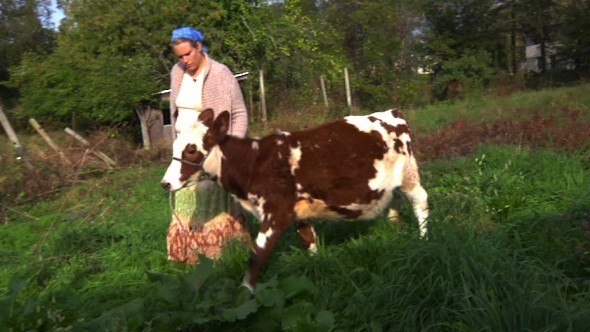
Each of these cows get individual and special attention from Terri. Since she is very attentive to them and pets each of them daily to decrease their nerves around people and, when it’s time for them to be slaughtered for beef, they will not suffer anxiety or stress. Here is Terri scratching Speckles’ chin!

I took quite a liking to Reba, who was content to be cooling off her feet in the puddle. Reba, who is four years old and about 1200 pounds, will become beef before this winter. Although she is rather young to be leaving the herd, Terri explained that she has an injured foot and has had a hard time calving.
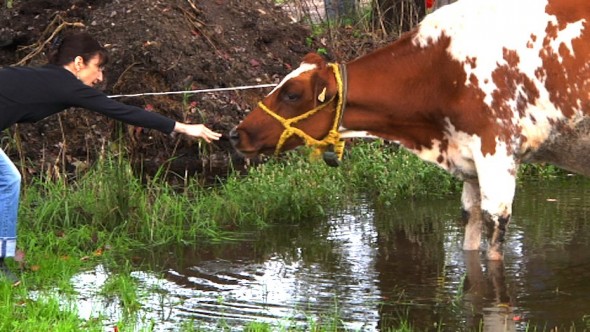
It was very touching to see this calf (a female) who was born just the day before! Her official name is “Oake Knoll Captain’s Choice” and will be a wonderful addition to Terri’s herd. Terri explained to us that on most dairy farms, including hers, calves are taken away from their moms at birth, mostly for sanitary purposes. They are “indiscriminate milkers” and will nurse from cows other than their own mothers. This could spread infection and disease in the herd. Bottle-feeding the calves also insures that they get the essential amount of colostrum, secreted by the mammary glands at birth. It’s very rich in essential antibodies for their health.
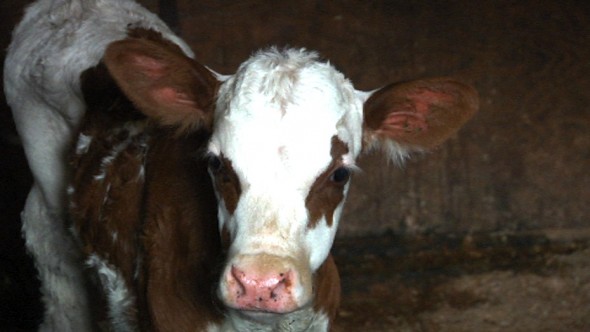
We also met a bull calf who was born on September 21st. Terri’s son, Joseph, named him Cuddles. He now weighs 70 pounds, but will become veal at 300 pounds (about four months old). Female calves are either kept at the farm to be included in the herd, or they can be sold. For dairy, male calves have no usefulness, so they become veal.
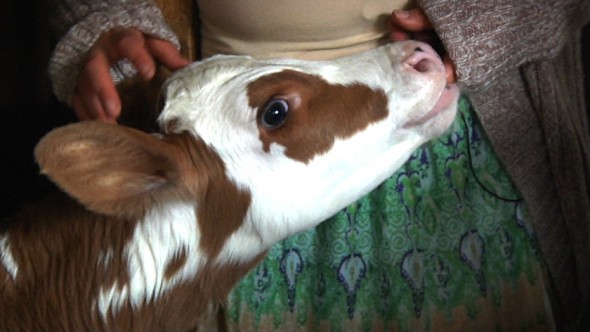
It’s a poignant realization that if we, as human beings, want to consume dairy, veal is a necessary byproduct. Terri does not crate her calves, but lets them roam freely. They lead happy, albeit short, lives.
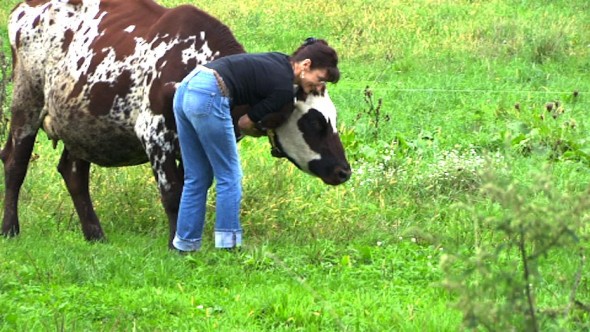
Although these animals are not pets, that doesn’t mean that we can’t treat them with respect. I know that Terri Lawton and other farmers like her will give cows like Speckles the best possible life, even through the slaughtering process. And since there are so many dairy farmers in the Northeast, they need access to processing and have trouble with the slaughterhouse shortage just as other meat farmers do.


